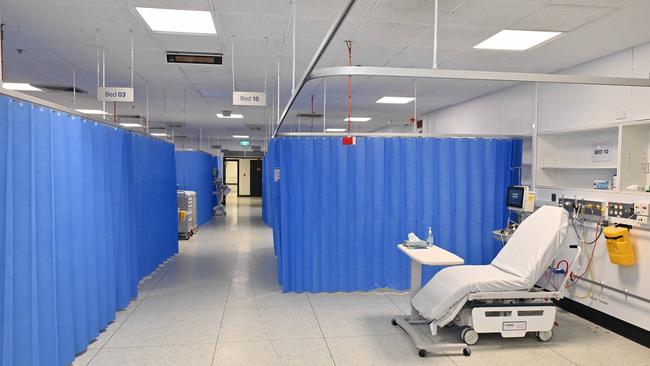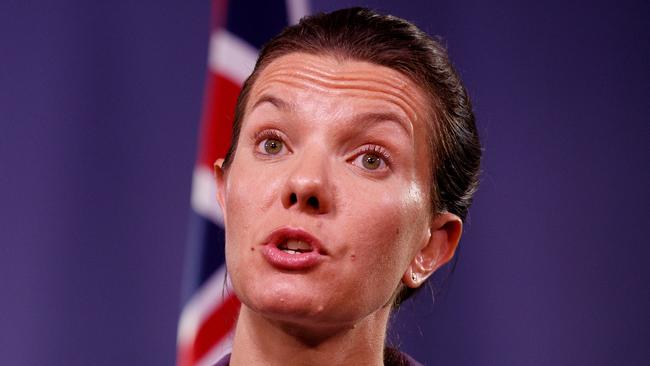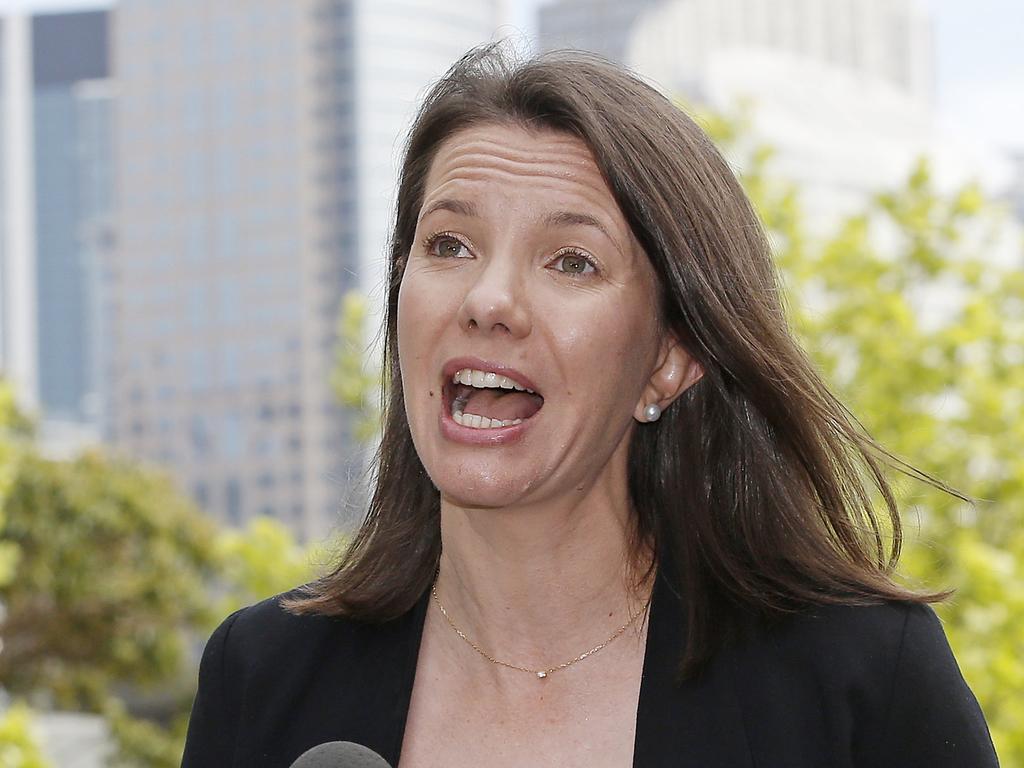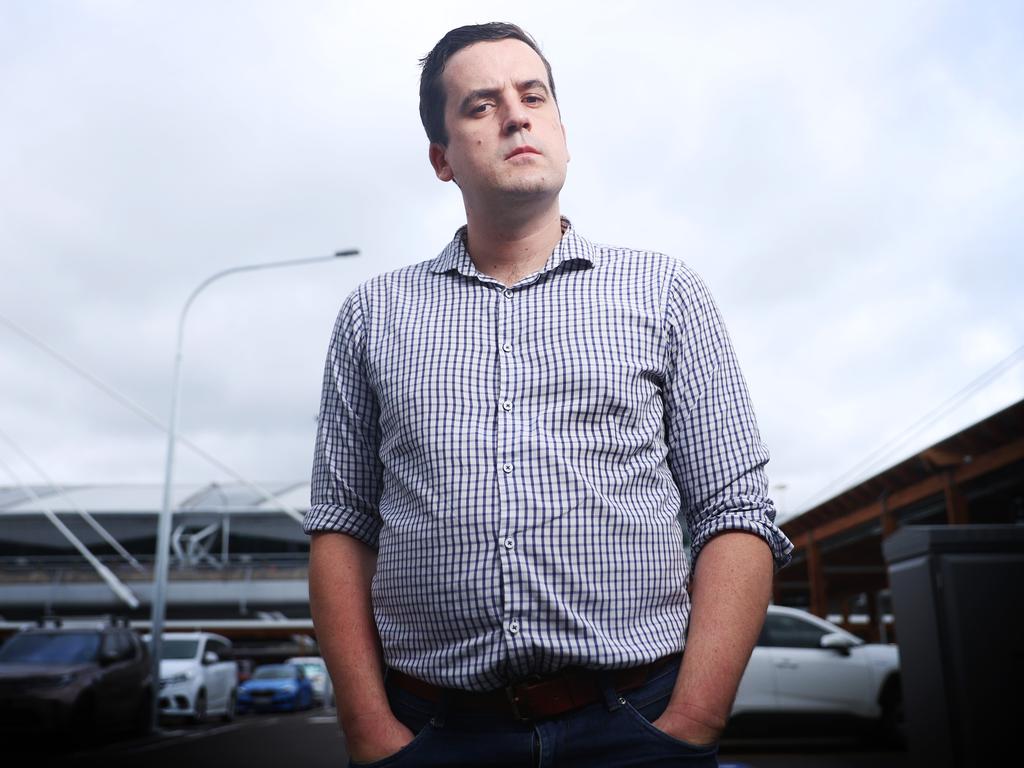Hospitals in NSW have issued directives that some mental health patients not be assessed overnight
Sydney hospital issues directive that bureaucrats undertake initial assessments of mental health patients rather than psychiatrists as resignations take effect.

One of Sydney’s busiest hospitals has laid out orders that psychiatrists are not to be called to assess patients overnight except in limited circumstances as emergency departments brace for “major impacts” from mass resignations of specialist clinicians.
A directive from the boss of the Sydney Local Health District has informed the Royal Prince Alfred Hospital’s mental health executive and ED department heads that the hospital’s designated executive on-call should be called in the first instance when mental health patients present overnight and that the psychiatry registrar on-call in emergency should be consulted only after the hospital’s executive manager has determined that “other options are exhausted”.
The executive on-call in many instances is not a medical doctor. It is unclear what the “other options” for patients are but the escalation procedure is specifically aimed at “reducing the burden for on-call psychiatrists” amid a depleted workforce.
The memo from SLHD chief executive Deb Wilcox outlines psychiatry registrars are to be called only in two circumstances overnight “following executive endorsement”. These circumstances include patients who are brought in scheduled under the Mental Health Act who are intoxicated or sedated, who then improve and are deemed assessable.
“A call is suitable if having this patient assessed would enable them to be discharged from ED and therefore improve the capacity of ED resuscitation bays”.
The second circumstance is in relation to “patients who are brought in scheduled under the Mental Health Act, who are already on an admission trajectory and there is a bed available”.
The only patients already scheduled when they are brought to ED have been scheduled by police. Other patients who are experiencing psychosis or other acute mental illness need to be scheduled by a clinician in hospital, usually a psychiatrist but sometimes a specialist emergency doctor.
There is widespread confusion among doctors and nurses at RPA as to what the escalation procedures mean in practice, but many are interpreting Ms Wilcox’s memo to mean that these patients will not be assessed at all overnight and will need to wait in ED until the morning to be seen by a psychiatrist, sparking significant concern about bed block.
That concern is shared by the Australian College of Emergency Medicine amid a lack of clear information about how many resignations of psychiatrists have been formally effected.
“There will be major impacts not only for patients requiring mental health care but also for all other patients and staff in EDs, as well as police and ambulance services,” the college warned.
Mental health patients already face the longest delays in seeking emergency care, with some waiting four days in the ED.
There is concern emergency doctors will be called upon increasingly to perform some functions of psychiatrists.
“We are not psychiatrists and cannot replace their crucial function in delivering emergency mental health care,” said ACEM’s NSW faculty chair Rhys Ross-Browne. “EDs cannot compensate for a shortage of mental health services, either in the community or in the hospital.” 
It was determined in the NSW Industrial Relations Commission on Tuesday that the dispute between the NSW government and staff specialist psychiatrists be arbitrated in a five-day hearing to begin March 17.
NSW Mental Health Minister Rose Jackson on Tuesday said in total, health districts had received 205 resignations. So far, 25 of those resignations have been rescinded and 81 are subject to delayed processing. That leaves 100 psychiatrists who will leave their jobs this week or next.

Ms Jackson said the government didn’t know how many were not at work on Tuesday, the day the first resignations came into effect. “I don’t receive daily reports of how many people have literally shown up for work and for what reason, partly because that’s individual employment information.
Deputy health secretary Matthew Daly said locums had been recruited but it was not possible to recruit enough to do the work of 200 psychiatrists. “The workforce just doesn’t exist anywhere in the country,” he said.
Some wards, in particular at Westmead and Cumberland hospitals, had been relocated to ensure patient safety, he said.
“NSW does not operate unsafe services,” Mr Daly said. “If a service is unsafe, it will close, or it will amend its size. It will amend its model of care. It will relocate, as is the case with Westmead and Cumberland, to maintain safety of care and safety of supervision.”
A Sydney Local Health District spokesperson said contingencies are in place “to ensure any mental health patient who presents to one of our emergency departments will be provided the care they need”.
“Plans are in place across NSW Health to ensure the best quality mental health care continues including the establishment of the Mental Health Emergency Operations Centre to co-ordinate efforts through the public health system. Non clinician executives will not be making clinical decisions about patients,” the spokesperson said.




To join the conversation, please log in. Don't have an account? Register
Join the conversation, you are commenting as Logout